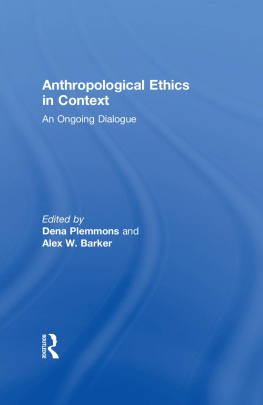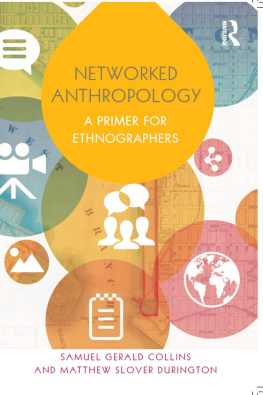
Politics and Pitfalls of Japan Ethnography
Four anthropologists draw on their fieldwork experiences in Japan to demonstrate collectively the inadequacy of both the Code of Ethics developed by the American Anthropological Association (AAA) and the dictates of Institutional Review Boards (IRB) when dealing with messy human realities. The four candidly and critically explore the existential dilemmas they were forced to confront with respect to this inadequacy, for the AAAs Code and IRBs consider neither the vulnerability and powerlessness of ethnographers nor the wholly unethical (and even criminal) deportment of some informants. Whereas the AAAs Code tends to perpetuate the stereotype of more advantaged fieldworkers studying less advantaged peoples, IRBs appear to protect their home institutions (from possible litigation) rather than living and breathing people whose lives are often ethically compromised irrespective of the presence of an ethnographer. In her commentary, Sabine Frhstck, who incurred ample experience with ethical dilemmas in the course of her pathbreaking ethnographic research on Japan's Self-Defense Forces, situates the four articles in a broader theoretical context, and emphasizes the link between political engagement and ethnographic accuracy.
This book was previously published as a thematic issue of Critical Asian Studies (vol. 39, no. 4, 2007).
Jennifer E.Robertson is professor in the Department of Anthropology at the University of Michigan. Among her books are Native and Newcomer: Making and Remaking a Japanese City (University of California Press, 1991 and 1994); Takarazuka: Sexual Politics and Popular Culture in Modern Japan (University of California Press, 1998); editor, Same-Sex Cultures and Sexualities: An Anthropological Reader (Blackwell, 2004); and editor, A Companion to the Anthropology of Japan (Blackwell, 2005). Robertson is the general editor of Colonialisms, a new book series from the University of California Press (www.ucpress.edu/books/COL.ser.html), and is presently completing a book on cultures of Japanese colonialism, eugenics, and biotechnologies.
Politics and Pitfalls of Japan Ethnography
Reflexivity, Responsibility, and Anthropological Ethics
Edited by Jennifer E. Robertson
First published 2009
by Routledge
2 Park Square, Milton Park, Abingdon, Oxon, OX14 4RN
Simultaneously published in the USA and Canada
by Routledge
270 Madison Avenue, New York, NY 10016
Routledge is an imprint of the Taylor & Francis Group, an informa business
2009 BCAS, Inc.
Typeset in Garamond in the USA by BCAS, Inc.
All rights reserved. No part of this book may be reprinted or reproduced or utilised in any form or by any electronic, mechanical, or other means, now known or hereafter invented, including photocopying and recording, or in any information storage or retrieval system, without permission in writing from the publishers.
British Library Cataloguing in Publication Data
A catalogue record for this book is available from the British Library
ISBN 10: 0-415-48649-1
ISBN 13: 978-0-415-48649-1
Contents
| Jennifer E. Robertson |
| ann-elise lewallen |
| Bridget Love |
| Elise Edwards |
| Tomomi Yamaguchi |
| Sabine Frhstck |
1. Bones of Contention: Negotiating Anthropological Ethics within Fields of Ainu Refusal
ann-elise lewallen
Contemporary anthropologists often confront a complex history of informant-researcher interactions preceding their own work, which, if left unaddressed, can effectively block access to host communities. In this article, I discuss the obstacles I faced in conducting ethnographic fieldwork with indigenous Ainu women in Hokkaido, Japan, to initiate a dialogue about ethnographic responsibility, researcher morality, and anthropological ethics as paths toward developing an engaged anthropology. During my field research, I was compelled to confront the research methods of my disciplinary predecessors, including the pilfering of human remains and burial accessories from communal gravesites and unconsented blood sampling. These methodologies exemplify Colonial Studies, a science informed by Japans imperialist projects. The collective memory of these research practices retains currency among contemporary Ainu political activists. Today these narratives are transmitted inter-generationally, resulting in suspicion and often contempt toward researchers. With these ethically dubious practices in mind, I consider recent developments in ethical guidelines for ethnographic research both in Japan and the United States, and compare these approaches with indigenous research protocols now mandated by several indigenous communities. Social scientists cannot claim primary authority as interpreters of socially marginal communities. In recent years, Ainu and other marginalized persons have begun earning advanced degrees and introducing community-sensitive approaches to research. Here I argue that anthropologists and researchers using the ethnographic method must develop research practices rooted in prior consultation, cooperation, and collaboration with local communities, and must introduce reciprocal processes with tangible benefit for local communities, if ethnographic work is to continue.
2. Fraught Fieldsites: Studying Community Decline and Heritage Food Revival in Rural Japan
Bridget Love
This article examines the conundrums of encounter and interpretation that animated the authors ethnographic research in an economically and demographically distressed region of rural Japan. The authors interest in local revitalization strategies led her to focus on a company spearheading a regional heritage foods initiative as a fertile research site. The company a dynamic grassroots forum ultimately failed to control deteriorating local circumstances by creating a new farm industry and reversing the towns sagging image. As the author became immersed in the optimistic visions of the region promoted by the company, she also grew entangled in local goals to further tourism and resettlement. This article shows that tensions between the authors support of grassroots renewal efforts and her skepticism about their potential to reverse local decline gave rise to ethical dilemmas that confound Institutional Review Board conceptions of field sites as places of controlled encounter. Exploring the authors attempts to navigate local agendas while pursuing her own research objectives, this article assesses dilemmas of ethnographic engagement in a politicized fieldsite where academic inquiries confront sensitive questions of community survival.
3. An Ethics for Working Up? Japanese Corporate Scandals and Rethinking Lessons about Fieldwork
Elise Edwards
Almost forty years after Laura Naders initial rallying call for anthropologists to study up, research on power holders and elite individuals and institutions still constitutes only a small fraction of ethnographic work. In addition, many of the methodological and ethical issues specific to studying up remain under-examined. Most discussions of methodological and ethical dilemmas in anthropology to date have assumed a power differential that favors the anthropologist. What happens when the power vector points in the other direction? Through the retelling of dilemmas faced when dealing with a very powerful and prominent field subject, I set the stage for a broader examination of the often taken-for-granted ethical and methodological norms of contemporary anthropological fieldwork. While pulling apart the intertwined narratives of a corporate scandal and a corporate-sponsored womens soccer team, I attend to the ways that studies of those in power often de-center commonly held assumptions within anthropology about the primacy of participant observation, the importance of rapport, the question of audience, and the need to protect subjects anonymity. Underscoring the analytical utility of attending to the process of ethnography, rather than just its products, this essay aims to raise some questions about the ethical and intellectual responsibilities of anthropologists, specifically those questions that arise when one studies up.









